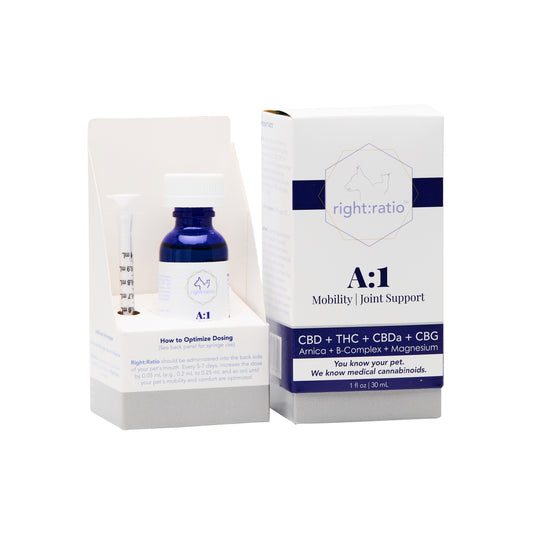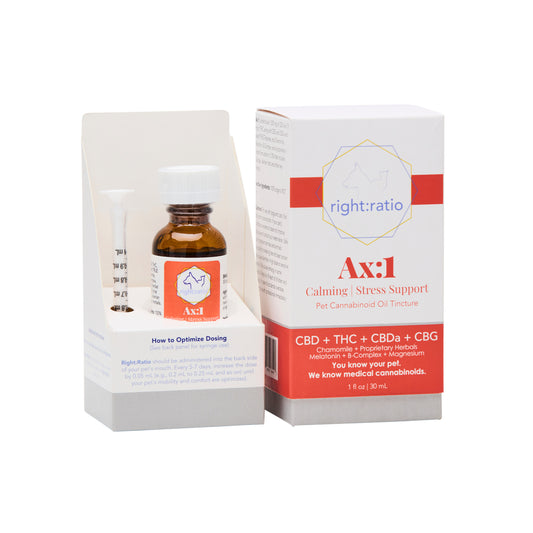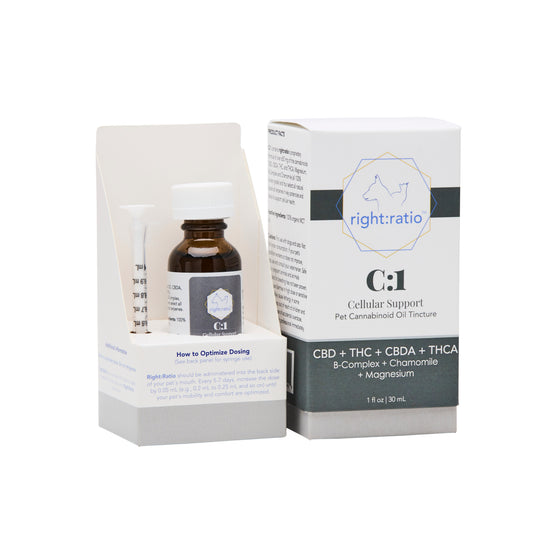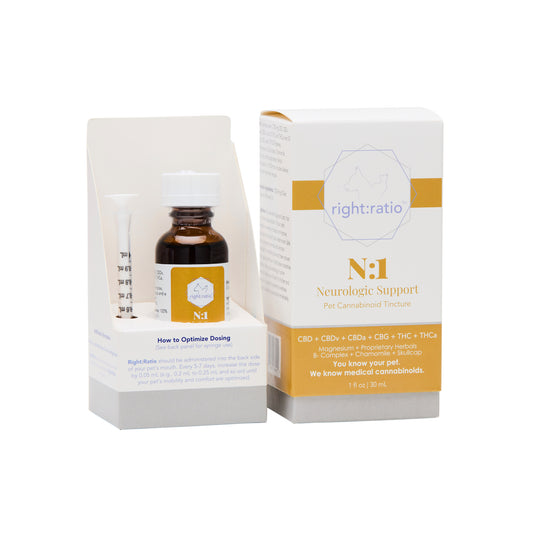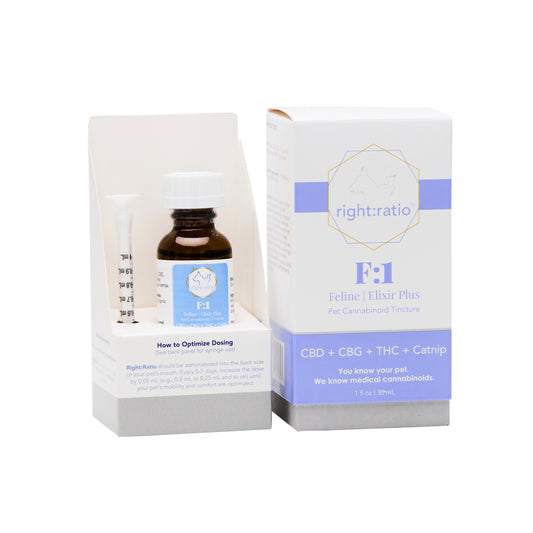
B Complex Vitamins and Their Impact on Mobility in Pets
Share
B complex is the name given for a group of eight B vitamins that are used to help both a cat and a dog’s bodies function by producing the red blood cells that carry oxygen to tissues like muscles so they can function, and with energy production so your pets can feel alive and ready to go. And the B vitamin complex works the same whether it is being used by humans or animals.
The B complex is crucial to developing and maintaining neurotransmitters so canine and feline brains can communicate with body parts, and the mix of vitamins includes common names you already know like Thiamine, Niacin, Folate, and Cobalamin. But more important is its impact on the metabolism which helps with mobility issues as you’ll soon learn.
The eight B vitamins that make the complex include:
- B1 (thiamine)
- B2 (riboflavin)
- B3 (niacin)
- B5 (pantothenic acid)
- B6 (pyridoxine)
- B7 (biotin)
- B9 (folate)
- B12 (cobalamin)
Each of the b vitamins in the complex serves a unique purpose, and some overlap like B5, B9, and B12 which aid in red blood cell production, or B3 and B12 which assist in the synthesis or production of new DNA.
Interesting fact: Dogs and cats can suffer from anxiety and depression just like humans, and b vitamins may be able to alleviate some symptoms from certain mental health disorders in humans and have been used in studies with pets which is why you see them in products for pet anxiety.
The same goes for mobility issues like arthritis, growing pains (panosteitis), and muscle cramps. Below you’ll find each of the B vitamins in the B complex and some of the ways they assist canine and feline bodies to help them through mobility issues and more.
B1 (thiamine)
Thiamine is critical for dogs and cats for energy metabolism to provide for the body, brain, and nervous system. Thiamine also has a significant role in muscle contractions which can lead to cramps post exercise, and proper movement while in motion.
B2 (riboflavin)
Aside from being an antioxidant, riboflavin has been tested in humans and in dogs and has shown it may reduce muscle pain and soreness. Deficiencies in riboflavin have shown muscle weakness in dogs, which makes sense since B2 helps with muscle strength.
It also plays a role in red blood cell production so oxygen can make it to the muscles. In addition, dogs with deficiencies may show neurological abnormalities including clumsiness and a loss of deep reflexes.
B3 (niacin)
This B vitamin is used for cellular signaling, turning food into energy (just like it does with us) and their metabolisms so your pet has energy to play, genetic stability, and DNA production in canines and felines. But there is a difference between cats and dogs when it comes to niacin. Dogs can synthesize some niacin from the amino acid tryptophan and cats cannot.
Healthy cellular signaling keeps cells on track for dividing, dying, and forming tissue like bone and muscle which your pet uses to get around.
B5 (pantothenic acid)
Just like other B vitamins in the complex, B5 helps with energy production so your cat and dog can explore, play, and move around. Cats that were deficient in B5 showed issues with growth and problems with their livers and intestines via histologic changes (changes in the tissues).
B6 (pyridoxine)
B6 helps your dog produce hemoglobin which is what the red blood cells use to carry oxygen through the body and to muscles where oxygen is used for contractions and movement. B6 is also known to help with the production of neurotransmitters which are what transmit messages across the body with one aspect being how and when to move.
B7 (biotin)
B7 is used to metabolize sugars, fats, and amino acids so your dog or cat can produce the energy it needs to have a healthy life. The amino acids help your their body produce the proteins that become bones, muscles, and other tissues used for mobility, and they assist with producing hemoglobin like B6.
B9 (folate)
Cell growth is one of the benefits from folate for your pets. A lack of B9 and B12 have shown neurological disorders in dogs, which can include issues with movement and mobility as both of these B vitamins are used for nerves, red blood cells, and cell growth. Folate deficiencies may result in muscle weakness and a lack of energy.
B12 (cobalamin)
Cobalamin is used to develop red blood cells so muscles can receive oxygen and contract during movements, for DNA formation, and for a healthy nervous system. The nervous system is what sends messages from the dog’s brain through their spinal cord so they can reach the muscles and let them know how to move.
As you can see, B complex vitamins are vital for mobility in dogs which is why you’ll find them in many medicines including CBD for joint health and mobility products. They assist with everything from developing new red blood cells so muscles can function properly, to transmitting the messages from the brain to the muscles, and building new DNA and tissues so your dog can continue to be strong and agile.

